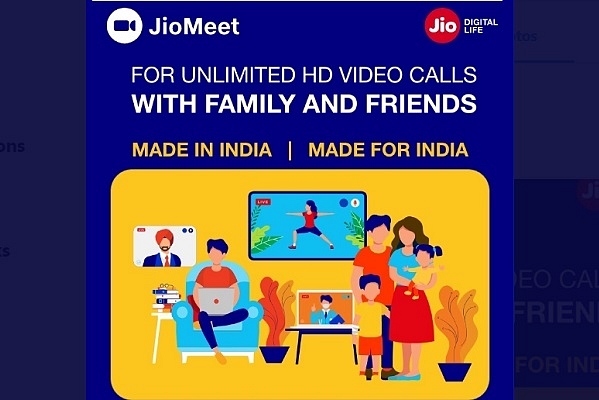
Zero Time Limit, No Guest Users And More: Here’s How JioMeet Can Disrupt The Zoom Digital Experience
While video conferencing app, Zoom has a 40 minute limit on group meetings in its basic or free plan, JioMeet, soft launched on Google Playstore and iOS on Thursday (2 July), has a 24-hour limit on group meetings, absolutely free.
Based on rate card of Zoom below where $15 per month is the charge for more than 40 minute meeting time (which is equivalent to $180 on an annual basis) to the host. In an apple-to-apple comparison, JioMeet is providing the same functionality and more, free of cost. This translates to Rs 13,500 of spoiler savings for a host per year.
The zero restriction on time limit targets is disrupting the Zoom digital experience. For instance in education, with 24-hour free JioMeet sessions, teachers will not be required to cut short their classes as they are forced to using Zoom. Similarly student won't be restricted to limit their questions and this may enhance the learning experience in both formal and informal education.
Friends, alumni networks and relatives will now not need to be caught in the "tyranny of 40 minutes," the free time allowed by Zoom runs out.
National and international seminars will experience complete migration a similar limitation because without any entry fee they can host their research - and conversation can spill over beyond 40 minutes easily for mutual benefit.
Sales demonstrations, especially, say, SMEs, kiranas, will be disrupted leading to enabling e-commerce. Likewise, brokers and any others needing constant and prolonged group video connectivity.
Collaborative cultural, social, musical, spiritual and events can be held which are livelihood source of performers and continue to keep social structure and fabric alive. Likewise democratic events.
Besides a price tag of zero, in terms of features and functionality JioMeet score on advantages. In a Zoom meeting, users can't expand a participant's video. In JioMeet meetings users can expand any participant's video or Shared Screen's video by a double tap.
JioMeet has 2 advanced meeting settings over and above Zoom options. Allow participants only from my organisation: If enabled only users from host's organisation (eg tcs.com or hll.com) can join that meeting. No potential snoops from other IDs.
It does not allow guest users. If enabled every user will be required to Sign Up before joining the meeting hence restricting anonymous users from joining the call.
Unlike Zoom, JioMeet users can switch from one device to another without dropping out of the call. Zoom allows Sign Up only with Email ID. JioMeet allows sign up with Email Id and mobile number.
Inside the call, Zoom shows 4 participants at a time on a single mobile screen (for others, users need to scroll through multiple pages). JioMeet allows 9 active participants on single mobile screen.
At a time when Chinese companies are under scrutiny worldwide, Chinese-American founder, Eric Yuan, has said that Zoom is not Chinese.
The Zoom video conferencing application for meetings is not a safe platform, the Cyber Coordination Centre (CCC) of the Ministry of Home Affairs has warned in an advisory on April 12.
In the advisory, issued on April 12, it is mentioned that "secure use of Zoom meeting platform is for private individuals and not for use of government offices or official purpose".
The government said that cert-in on the same lines had been informed on February 6 and March 30 this year clarifying that "Zoom is not a safe platform".
In a set of guidelines for the safety of private users, the CCC division of the MHA mentioned that "those private individuals who still would like to use Zoom for private purpose" should follow certain guidelines like prevention of unauthorised entry in conference room and unauthorised participant to carry out malicious on terminals of others in the conference.
The advisory also suggested to "avoid 'DOS' attacks by restricting users through passwords and access grant".
CERT, the Indian Computer Emergency Response Team under the Ministry of Electronics has issued two high severity ratings advisories on Zoom app.
In an advisory on April 2, it called out multiple vulnerabilities in Zoom video conferencing application. CERT said these vulnerabilities could allow an attacker to gain elevated privileges or obtain sensitive information on the targeted system.
In a March 30 advisory, CERT said insecure usage of the platform could allow cyber criminals to access sensitive information such as meeting details and conversations.
The US Defense Department, Pentagon has also warned about, "Zoombombings". On April 13, it was decided that Zoom is now officially off-limits to Defense Department personnel due to increased security concerns.
Service members, contractors and civilians can no longer use Zoom in an official capacity, the Pentagon announced.
This followed a warning from the Federal Bureau of Investigations last week stating the video meeting app has seen an increase in uninvited participants infiltrating sessions -- a phenomenon known as "Zoombombing".
This news has been published via Syndicate feed. Only the headline is changed,